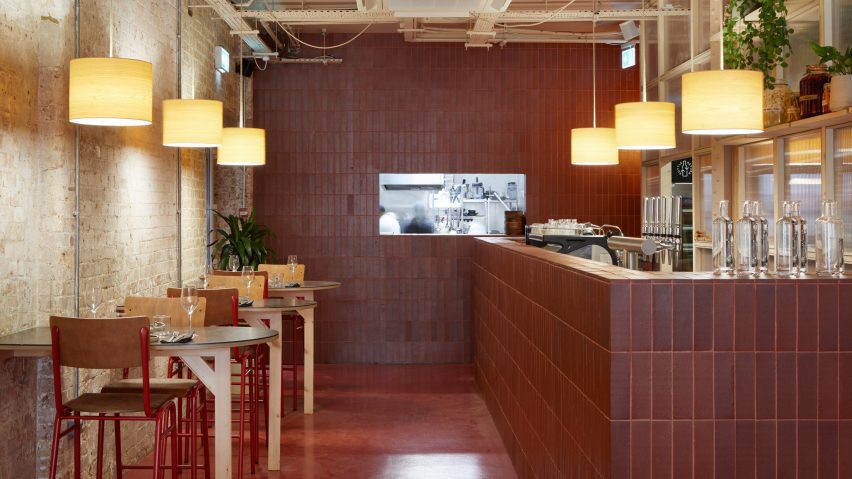
Elly Ward designs own restaurant Edit using salvaged terracotta tiles and reclaimed materials
Architect and restaurateur Elly Ward has opened the low-impact restaurant Edit in London, drawing inspiration from its vegan, minimal-waste menu to create an interior filled with reused and recycled materials.
Ward collaborated with her husband Joe Morris of architecture studio Morris + Company on the project, which was designed using low-intervention methods.
"It's been designed to be as circular as possible, which is the whole philosophy of the restaurant," she told Dezeen.
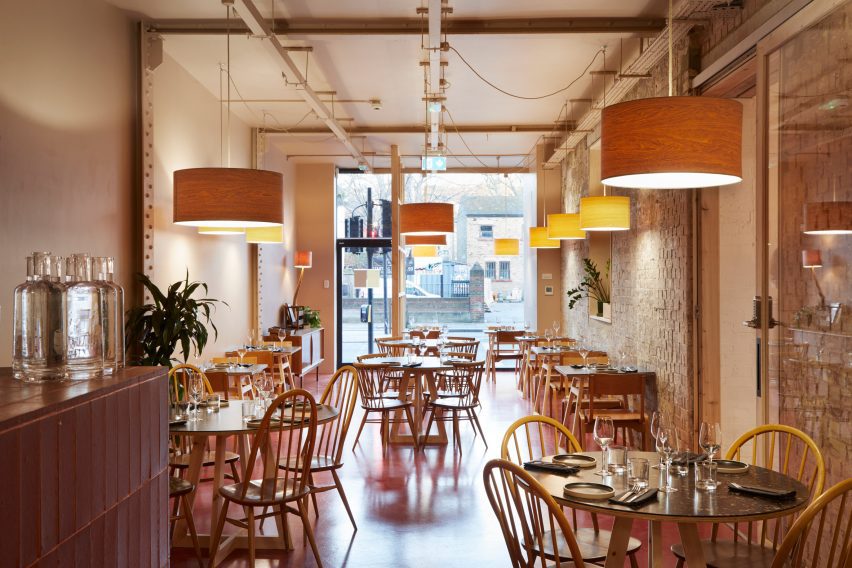
Edit is located in a former factory and warehouse building in east London and connected to the adjacent Morris + Company architecture office.
Visitors to the restaurant can view the studio's models through a large glass door, adding a decorative touch to the space.
This door and a window into the office were two of the main changes Ward made to the existing space, which she has transformed using recycled and reclaimed materials.
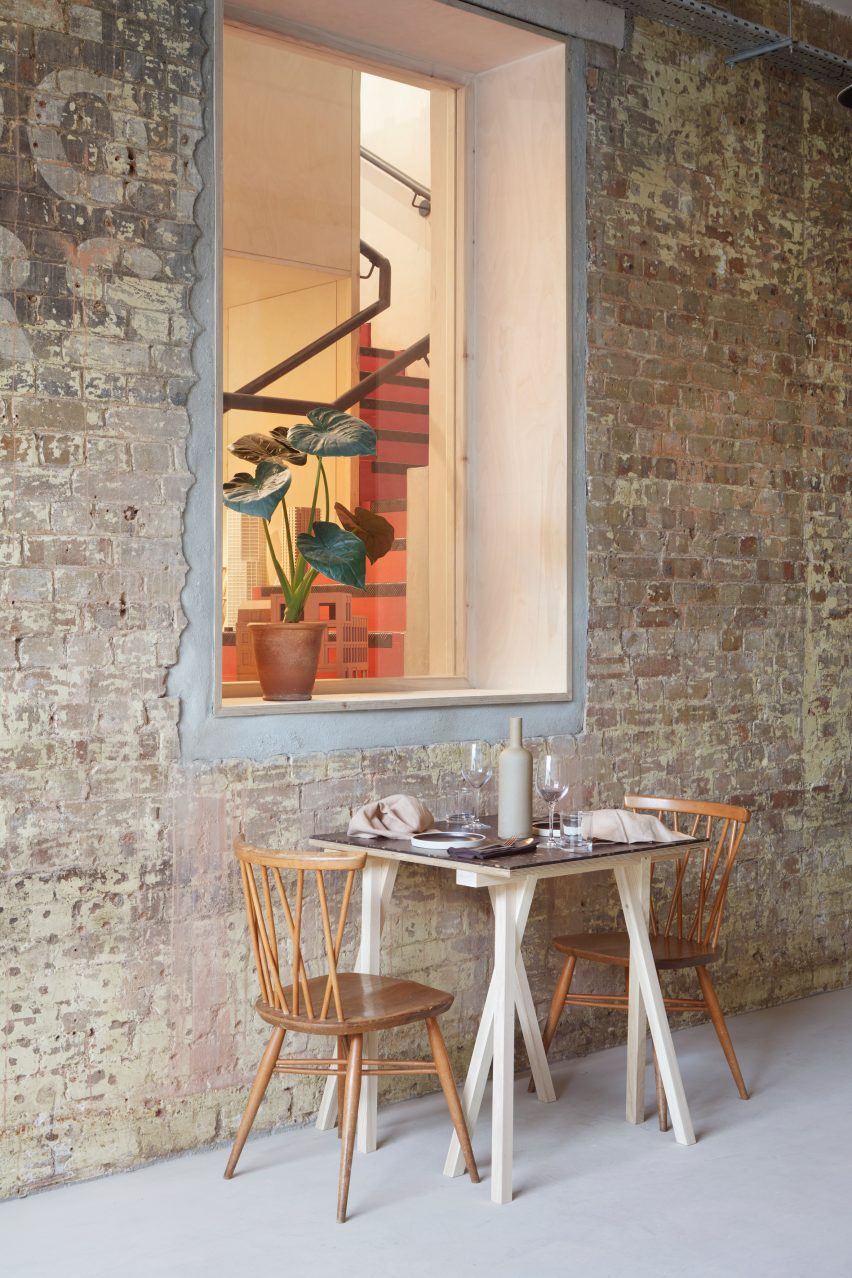
The building's brick walls – including a former exterior wall that still features old advertising text – were retained alongside the warehouse's cast-iron columns and beams, forming the structural fabric of the 197-square-metre restaurant.
Ward added lightweight screen partitions that slot between the existing structures, including a wall made from wood and recycled polycarbonate that divides the main dining area from a smaller private dining room.
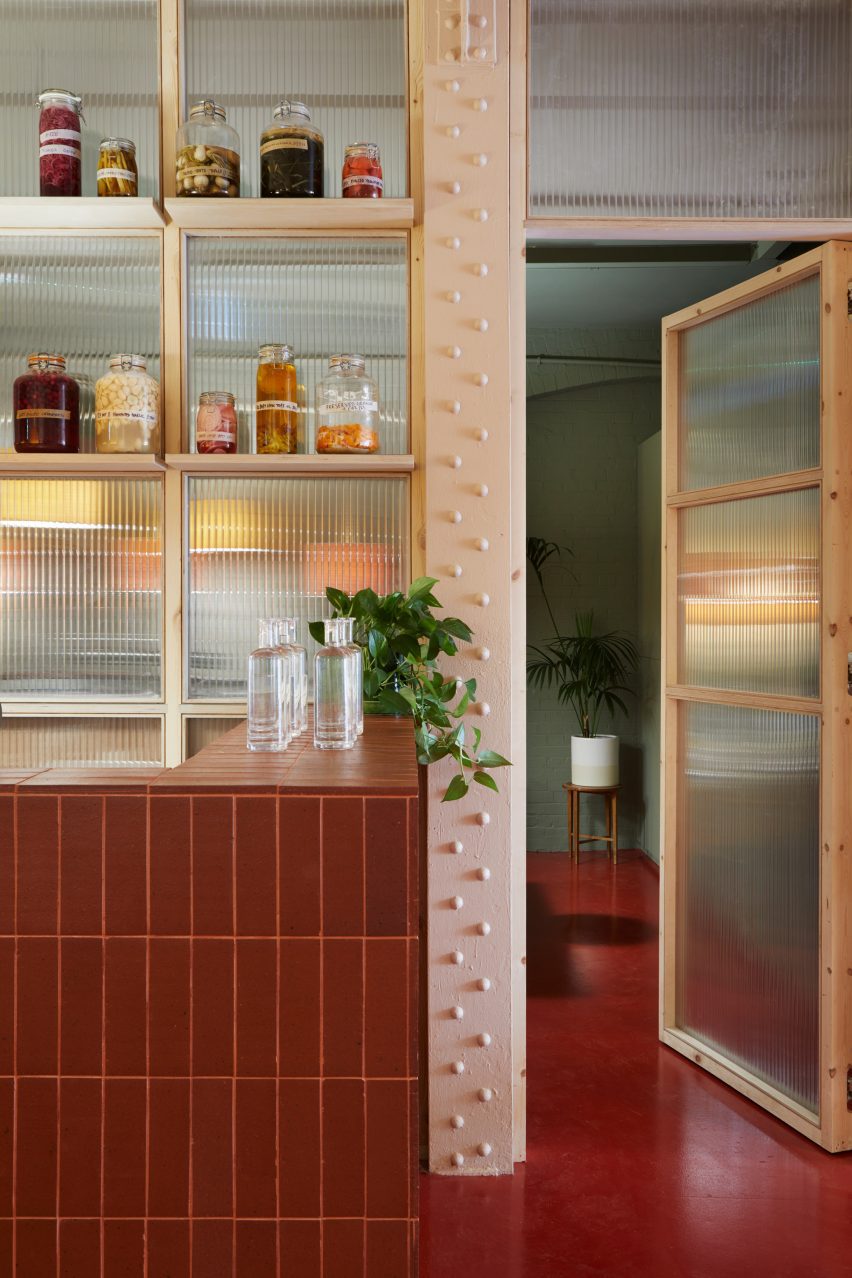
A warm red floor, made from screed topped with a water-based resin, matches the floor in the architecture office next door and contrasts the textured brick wall that Ward and Morris painstakingly unveiled from underneath layers of paint.
At the rear of the space, the duo clad a wall in salvaged maroon terracotta tiles, which merge into the bar counter. These were among the many recycled materials that Ward used for the project.
"I call them my wonky tiles because they're like the wonky fruit and wonky veg of the industry that gets thrown away because it's not a perfect carrot," she said.
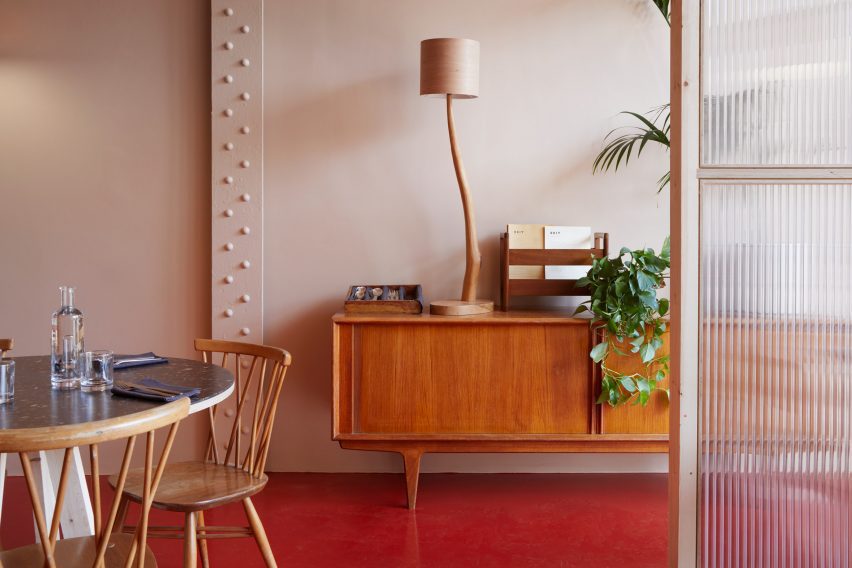
The architect also reused the copper from an existing bar in the restaurant, which now clads the sinks in the bathroom.
"It's all about diverting waste from waste streams," Ward said.
"When you're building something new, you have to get things," she added. "If you can't buy recycled or reclaimed, you have to look for renewable materials, things that would have otherwise gone to waste but you've made into something else."
"It's almost a checklist of 'how circular can you be?'"
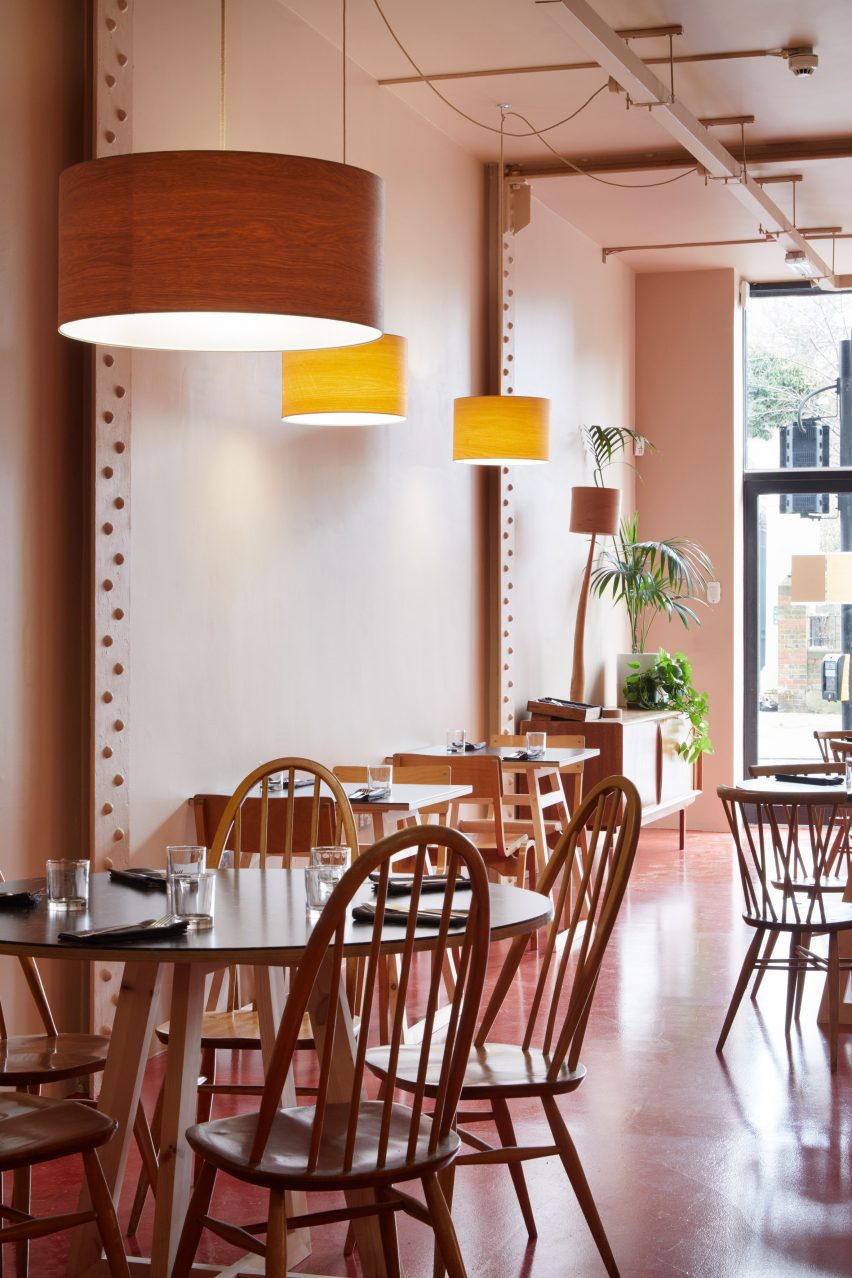
Ward also sourced vintage Scandinavian school chairs to provide seating in the restaurant and complemented them with her grandparents' wooden chairs and vintage Ercol seats.
The accompanying tables have tops made by British company Foresso using waste wood chips set in a plant-based resin, creating an effect similar to wooden terrazzo and adding textural interest to the room.
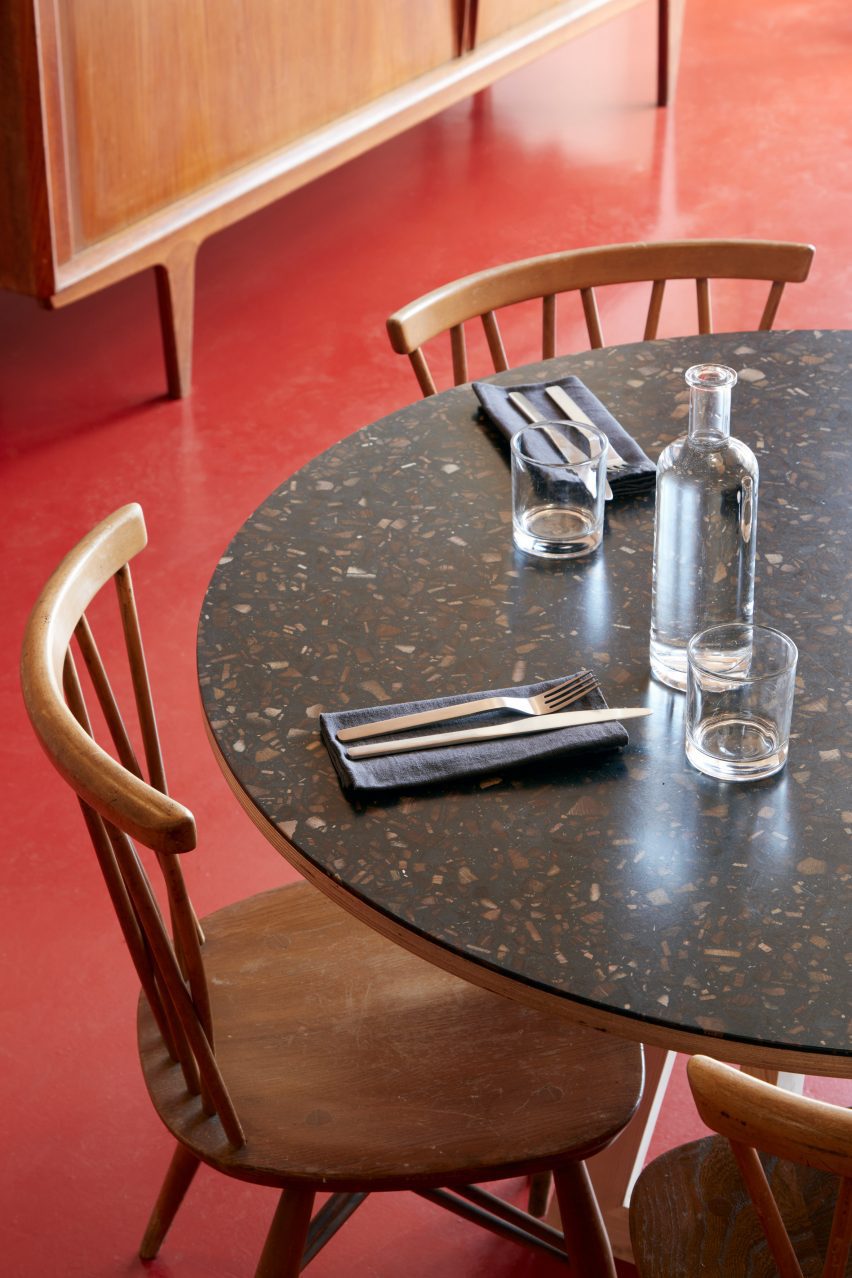
The lighting in the space was handmade by British artist Peter Lanyon using wood salvaged from trees that were trimmed back in a local woodland in Devon. Pieces include a "chandelier" made from a piece of hazelwood with hanging lampshades made from cherrywood veneer.
Throughout the restaurant, the colour palette adds a sense of warmth. While the main room has a red hue, Ward chose a calming green colour for the smaller private dining room.
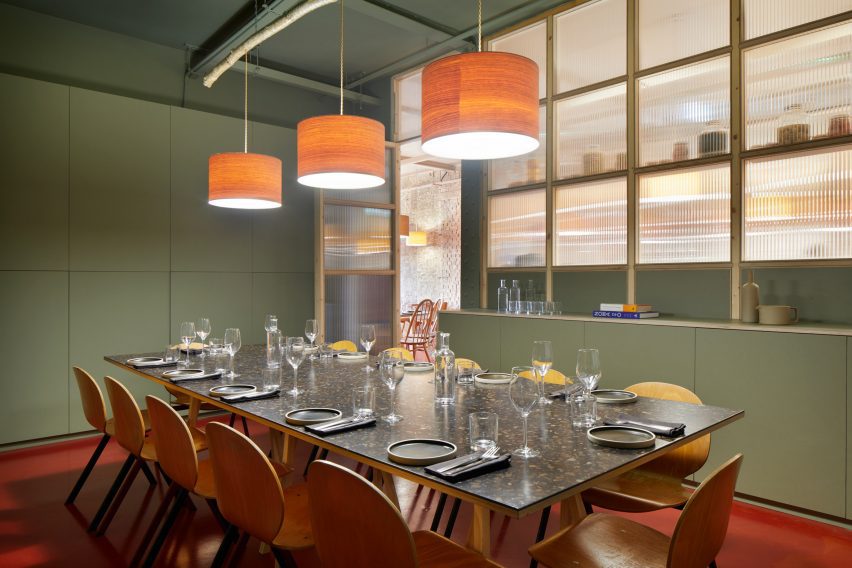
"We started with the red; it's obviously such a strong colour," Ward said. "I'm somebody who's quite into colour and I'm not really afraid of it but I didn't want it to be a 'pop' kind of place."
In the bathroom, the red hue is tempered by the decorative natural cork that clads the walls in both the main space and the toilet cubicles.
"It's all waterproof and actually really good for humid, damp environments and you can wipe it clean," Ward said.
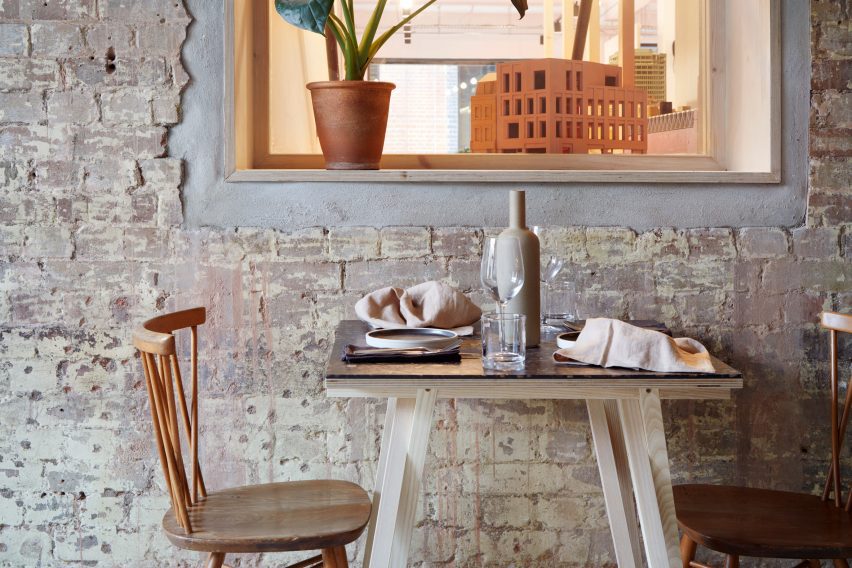
To Ward, there's a connection between the food and architecture industries that she wanted to underline in Edit's design.
"I did a deep dive into the food industry and found out a lot of stuff about provenance and how a lot of the things we're looking at in the architecture world about circularity and sustainability are kind of echoed in the food industry," she said.
"I wanted the design to match that philosophy."
Other vegan restaurants with decorative interiors include Humble Pizza by Child Studios in London and Sydney vegan cafe Gumbuya.
The photography is by Jack Hobhouse.